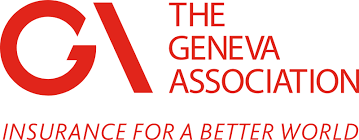The overall objective of the Action is to establish and/or improve the linkages between domestic SMEs (dSMEs) – multinational companies (MNCs) operating in Macedonia, with the final goal to increase domestic business sector competitiveness.
This overarching aim is broken down into specific objectives:
- To better match demand and supply between dSMEs and MNCs through addressing value chain supply barriers and mapping potential value chains;
- To upgrade capacity of dSMEs for skills foster “selling” themselves to the MNCs; identification of opportunities, building networks, and improving efficiency;
- To reduce the technological gap between dSMEs and MNCs by improving capacity and information for standardization and licencing, elevating innovation and R&D capacity, and fostering implementation of new technologies.
- To spark networking between dSMEs and MNCs through knowledge transfer and mentoring, as well joint events.
The project will deliver the following outcomes:
- Increased technological capacities of dSMEs, in terms of knowledge and capacity for standardization and licencing;
- Developed interface for supply and demand services and providers (entering the value chain of MNCs);
- Improved capacities of dSMEs for establishing effective communication with and presentation of their ‘offer’ to MNCs;
- Established and upgraded partnerships between the two;
- Produced policy briefs/studies with addressed value chain supply barriers and recommendations.
Donor: European Commission (CFCD – Ministry of Finance)
Duration: January 2018 – December 2019
Tenders
Call for tender 02-67/1 – Offer submission request – Offer form
Call for tender 02/230/1 – Offer submission request – Offer form
Call for tender 02/231/1 – Offer submission request – Offer form
Call for tender 02/232/1 – Offer submission request – Offer form
Call for tender 02/229/1 – Offer submission request – Offer form
Call for tender 02/223/1 – Offer submission request – Offer form – Specifications
Call for tender 02/222/1 – Offer submission request
Call for tender 02/316/1 – Offer submission request – Offer form
Call for tender 02/88/01 – Offer submission request – Offer form – Specifications
Call for tender 02/404/01 – Offer submission request – Offer form
Documents:
Training manual for soft skills
Brochure www.kompanii.mk
Newsletter
Visual products
Leaflet 1 – Leaflet 2 – Leaflet 3
Poster 1 – Poster 2
Other visual products here

